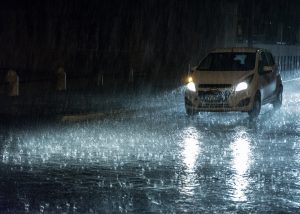7 Safety Tips For Driving At Night
-

Driving at night can be a daunting task. Poorly lit roadways combined with dazzling lights from oncoming vehicles often result in impeded vision, increasing the risk of accidents at night.
Stay safe while driving after dark with these seven tips for driving at night.
Tip#1 Don’t drink and drive
Driving under the influence of alcohol is dangerous and illegal. Even small amounts of alcohol slow reaction time and impair judgment. Enjoy socializing with friends or partying by designating a driver who is not drinking.
Studies have also shown that drunk drivers are more likely to be present on the roads at night. When driving, always be aware of the other motorist’s car speed, position in their lane, and reaction time. Stay away from drivers displaying erratic behaviour.
Tip #2 Maintain your car
Ensure that your car is in good condition. Do regular oil changes and check tyre pressure. Before driving at night, clean headlights, signal lights and taillights, as well as the windshield and other windows to remove streaks.
Also, dim your dashboard and switch off the interior lights as any light on inside the vehicle makes it harder to see outside.
Tip #3 Be well rested
Stay alert. Avoid driving after taking prescription drugs which can cause you to become drowsy. If you begin to feel sleepy, find a safe spot to stop and take a 20-minute nap in a well-lit space. Many serious accidents occur because the driver has fallen asleep.
Tip #4 Look after your eyes
Driving at night can cause eye fatigue and older drivers often find they see less well in the dark. Eye doctors recommend that you keep your eyes moving by scanning your field of vision rather than focusing on one area. The American Optometric Association suggests eye check-ups if you are under 40, every two years if you are under 60, and annually if you are over the age of 60.
Tip #5 Exercise due care
Drive cautiously at night. Obey speed limits and leave enough space between your car and the vehicle in front of you.
Tip #6 Be ready for emergencies
Even if your car is maintained well, you must be prepared for any type of emergency at night. Items that you should have in your vehicle include a cellular phone, charger, first aid kit, flashlight, jumper cables, tyre gauge, and extra windshield washer fluid. Plan your route before you go on the road so that you have an idea of where you can stop if there are any eventualities.
Tip#7 Focus
To ensure your safety and the safety of your passengers, drivers should be focused solely on driving. Avoid using your cell phone, eating or drinking. If you are hungry or thirsty or need to make a call, find a safe place to stop.
Follow us at @genacja on Instagram and Facebook for other helpful driving tips.

